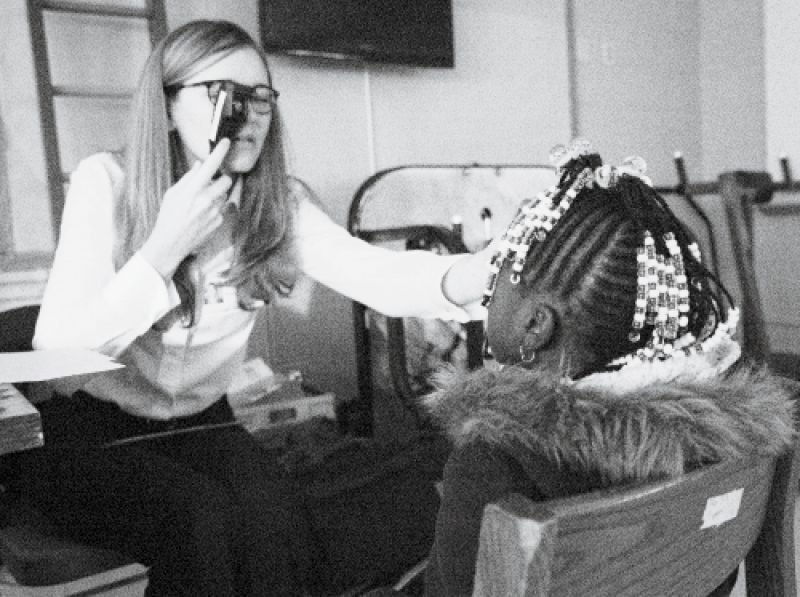
“In children, serious eye conditions like eye turns and eye crossing can lead to lifelong, and sometimes debilitating, vision issues if treatment does not begin at a young age,” says Courtney Plotner, director of programs for Charleston’s Association for the Blind and Visually Impaired (ABVI).
That’s why the nonprofit created the Focus on Children program in 2009. For a stunning 75-plus years, ABVI-Charleston has been assisting the blind and visually impaired in our community, offering services ranging from classes and recreational opportunities to scholarships for guide dogs; but this was now a way to catch eye conditions—as well as basic near- and farsightedness—at their onset, giving the city’s youngest students the best start possible.
At the beginning of each academic year, association staff and volunteers dive into screening three- and four-year-olds in 23 Head Start and Child Development programs in Charleston County Title One schools. An optics machine takes a picture of each youth’s eyes, estimating visual acuity, or sharpness. If any problems are detected, the patient is recommended for a fully dilated eye exam, which is conducted during a return visit by opticians and ophthalmologists working with ABVI for free or at reduced rates. Students who need glasses are fitted for pairs at no cost to them—potentially life-changing accessories, says Plotner.
“Learning is about 80 percent visual at that age, and it really harms a child’s developmental process if he isn’t able to see,” she explains. “Often, kids act out because they are progressing more slowly [than their peers] and don’t know how to express the reason.” If doctors identify a more serious condition—from eye turns to cataracts—they refer the patient to a doctor, who will begin treatment.
Last year alone, the association gave 389 full eye exams and provided glasses for more than half of those students, Plotner notes. About 40 kids were referred to ophthalmologists or optometrists for more serious conditions.
“Treatment at this young age should allow the children to have proper vision as they mature,” says Plotner. “We are excited to be able to make this difference in their lives, but also to be out there advocating for the importance of children’s eye exams. Everyone should get an eye exam every year.”